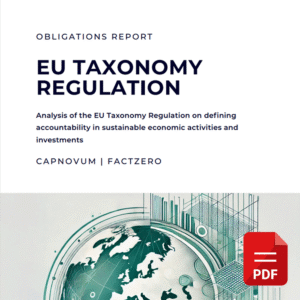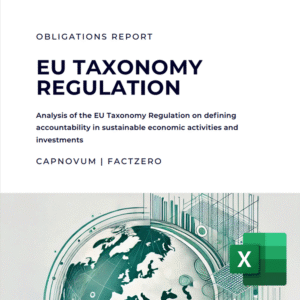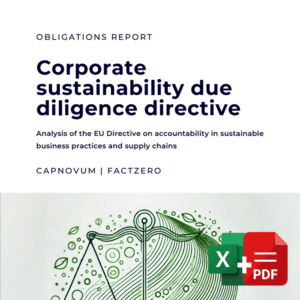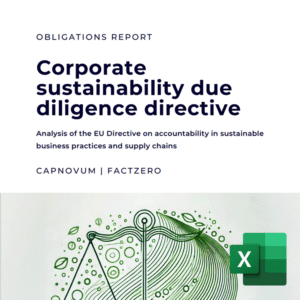Description
Introduction to CRDR Directive
The purpose of the CSRD is to improve the quality, comparability, and reliability of sustainability information disclosed by companies. This information is crucial for investors, consumers, policymakers, and other stakeholders who rely on ESG data to make informed decisions. The CSRD aims to ensure that companies provide detailed reports on their sustainability practices, including their impacts on the environment, social factors, and governance structures.
What the Spreadsheet Offers
Our CSRD directive obligations framework Excel sheet provides a structured approach to tracking compliance. It simplifies the process of identifying and managing the numerous obligations imposed by the regulation. In addition it provides a topical classification of each obligation – up to four kevels – to assist you in distributing work across subject matter experts within your organisation.
Benefits of Using the Framework
This Spreadsheet not only enhances your team’s efficiency but also helps in ensuring that no obligation is overlooked. With clear layouts and defined metrics, staying compliant becomes achievable, making it an indispensable tool for teams navigating CSRD requirements.















